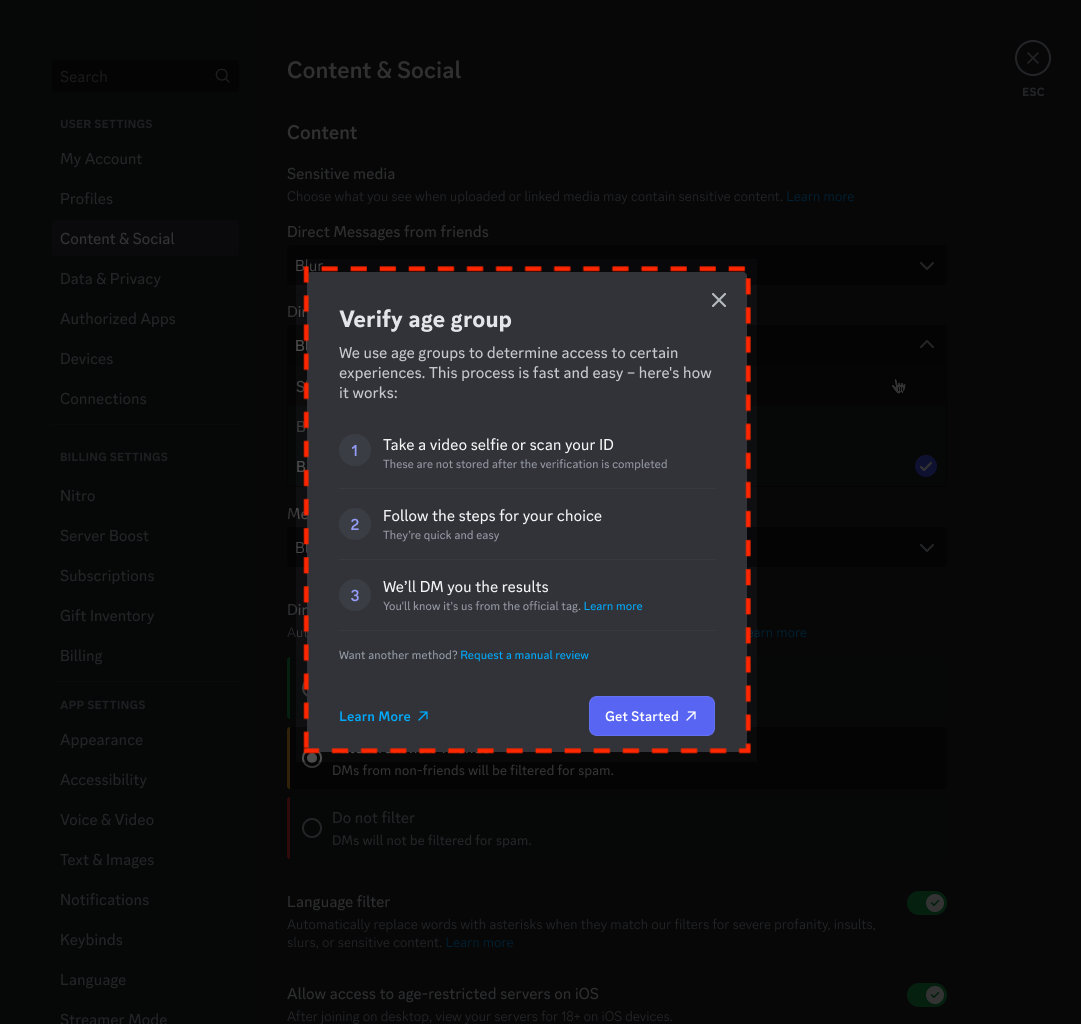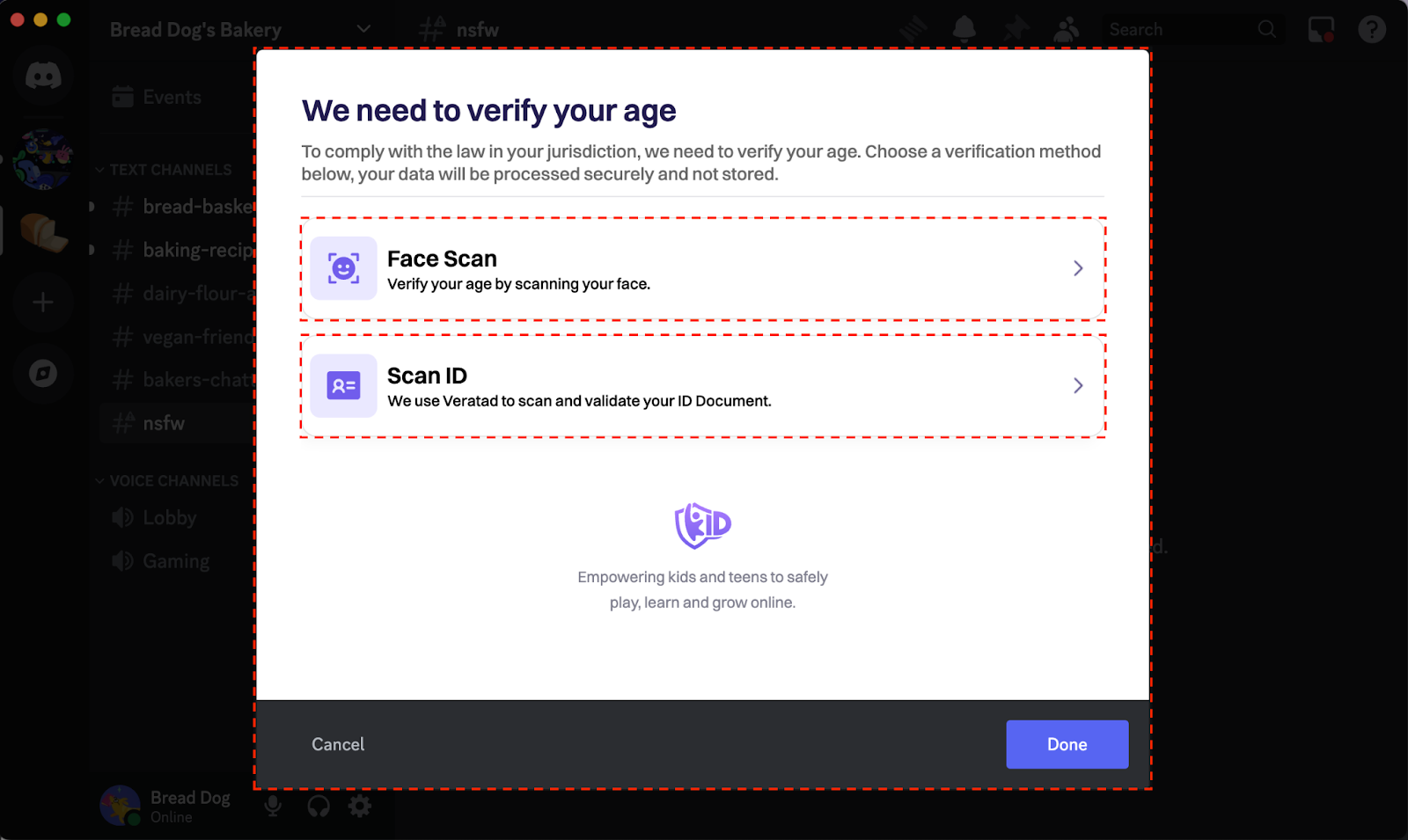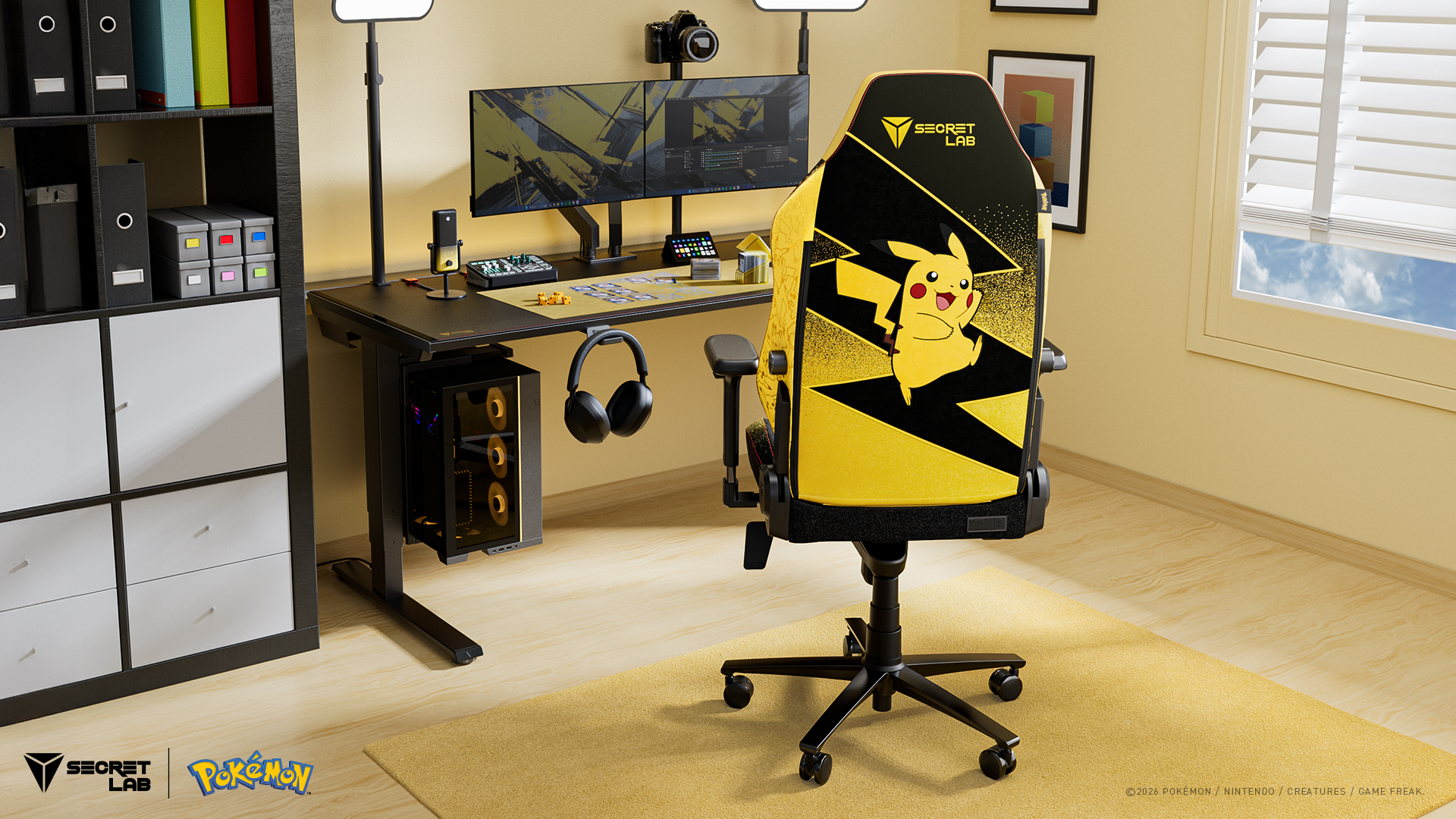Eugh: Discord is scanning users’ faces and IDs in Australia and the UK to ‘experiment’ with age verification features

Some Discord users are now being asked to scan their faces or IDs to verify their age group when they attempt to view sensitive content. While some might call this a chilling advancement of the global surveillance apparatus, Discord says these new “features” are “an experiment” that only applies to users in the United Kingdom and Australia, which recently passed laws requiring more rigorous age verification on platforms that might expose children to harmful content.
On its support page describing the new verification procedure, Discord says users may be asked to verify their age when they either encounter “content flagged by our sensitive media filter” or try to modify their sensitive content filter settings.
When asked, users will be presented with two methods for age verification. First, they can allow Discord to scan their face with their device’s camera. If, hypothetically, the user finds it disagreeable to let the gamer group chat app analyze their facial features, they can instead scan a QR code with their phone, which leads to a page where they can upload a scan of their government-issued identification as proof of their age group.
After providing either a face or ID scan, the user will receive a notification about their age verification status via a DM from Discord’s official profile. Discord says the process “typically takes just a few minutes.” Users will only need to verify their age once, but can retry the process or submit an appeal if they believe their age has been verified incorrectly.
Recent years have seen the UK and Australia join a trend of governments adopting stricter age verification requirements for web platforms with the intent of protecting children from harmful content. In 2023, the UK’s Online Safety Act entered into law, requiring websites and platforms that might host explicit content to enforce “robust” user age limits. Last year, Australia’s parliament passed a ban preventing children under 16 from using social media. The ban is due to take effect in December 2025.
While the purported intent of these measures is to protect children, digital rights groups like the Electronic Frontier Foundation say that they undermine online privacy, security, and free expression, going so far as calling the Online Safety Act “a blueprint for oppression around the world”—in part due to their reliance on “unreliable tools like biometric scanners.”
Discord, at least, says it won’t maintain a record of age verification scans.
“The information you share to power the age verification method that you choose is only used for the one-time age verification process and is not stored by Discord or its vendor,” Discord says. “For Face Scan, the solution our vendor uses operates on-device, which means there is no collection of any biometric information when you scan your face. For ID verification, the scan of your ID is deleted upon verification.”
Based on screenshots on the support page, the age verification vendors in question are k-ID and Veratad.
The k-ID website says it provides technology that “enables publishers and platforms to stay compliant with the latest global privacy and safety regulations.” It’s also got a lot of imagery with that pseudo-Pixar AI-generated stink on it, including one boy with truly inscrutable footwear.
Veratad, meanwhile, says it provides “customer identity verification solutions” by “bringing together the World’s most disruptive IDV tech.” To soothe the fears of anyone who might be wondering what “disruption” entails when it involves processing your facial geometry, Veratad provides a reassuring image of a computer spraying fluorescent dots all over a guy’s face like it’s calculating a targeting solution for its onboard ordnance package.
I’m sure they mean well.







